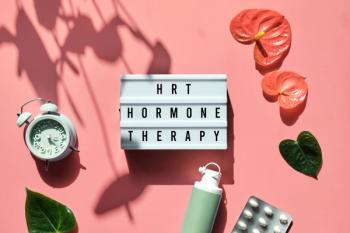
FTC studying legality of authorized generics deals
A pending Federal Trade Commission (FTC) report, expected later this year, may settle the decade-old dispute as to whether authorized generics are legal. With billions of dollars at stake, the loser will undoubtedly challenge the government's decision.
A pending Federal Trade Commission (FTC) report, expected later this year, may settle the decade-old dispute as to whether authorized generics are legal. With billions of dollars at stake, the loser will undoubtedly challenge the government's decision.
Authorized generics are produced by brand companies and marketed under the brand company's new drug application (NDA), although under a new label.
At least that's the definition promulgated by the brand industry. It leaves out the part about deals cut between brand manufacturers and generic companies. Those deals call for generic manufacturers (which often are a subsidiary or sister company of the brand company) to make an identical copy of the branded drug.
What makes authorized generics so controversial is that they are sold during the 180-day exclusivity period, which, under the Hatch-Waxman Act, is the exclusive domain of the first generics manufacturer to successfully complete an abbreviated new drug application (ANDA) with the Food and Drug Administration (FDA).
"The issue is profit," said David Balto, former policy director in the FTC's Bureau of Competition. "If a [brand] manufacturer can cut a deal with a generics company that gives the brand manufacturer a crack at the 180 days of exclusivity, it has serious financial implications."
Why they do it
According to the market research company Cutting Edge Information, in its report "Combating Generics 2008," brand manufacturers decide to create authorized generics when they believe "a court battle is too costly to justify."
It's not a panacea, of course. "Authorized generics provide only a few months' worth of sustained profits in most cases," said Eric Bolesh, research team leader at Cutting Edge Information. "[But] companies losing patent protection are forced to fight a series of losing battles. Authorized generics are an alternative."
Conflicting research
With billions at stake, everyone has research that promotes his or her point of view. Prasco, for example, touts a report conducted by researchers from the American Enterprise Institute (AEI) and the consultancy Sonecon LLC that refutes the idea that authorized generics reduce the number of patent challenges by generics manufacturers or the development of new products. "We found that the additional competition from authorized generics during the 180-day exclusivity period actually reduces the prices for American consumers," said Kevin Hassett, Ph.D., of AEI.
PhRMA had produced a study a few years ago that reached the same conclusion. Both studies found that competition between an authorized generic and another generic during the exclusivity period could reduce costs to consumers.
The AEI/Sonecon report went a bit further, claiming that a lot of the money authorized generics manufacturers made was put back into research and development, which the report said is good for consumers.
GPhA's report basically found the opposite. It concluded that authorized generics stifle competition and therefore drive up prices to consumers, quoting a May 2005 speech by FTC Commissioner Jon Leibowitz: "[W]e could very well see fewer generics applications for smaller drugs ... this could lead to fewer generic products on the market, which could then result in less competition down the road. That would be bad for consumers."
That year Congress asked the FTC to referee the dispute. The commission was given subpoena rights to conduct its study and is gathering information from about 80 brand-name drug manufacturers, 10 authorized generics companies, and 100 independent generics manufacturers.
THE AUTHOR is a writer based in Gettysburg, Pa.
Newsletter
Pharmacy practice is always changing. Stay ahead of the curve with the Drug Topics newsletter and get the latest drug information, industry trends, and patient care tips.




































